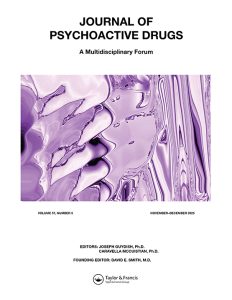
Honoring Albert Hofmann: The Father of LSD and His Legacy in Healing Addiction
Today, we celebrate the birth of Albert Hofmann, born on January 11, 1906—a man whose curiosity and scientific rigor paved the way for a profound shift in our understanding of consciousness, healing, and the human experience. Hofmann, famously known as the “father of LSD,” was a Swiss chemist whose serendipitous discovery of lysergic acid diethylamide (LSD) in 1938 catalyzed decades of research into the therapeutic potential of psychedelics. While his contributions extend far beyond any single discovery, his work has had a particularly significant impact on the field of addiction recovery, a connection that deserves recognition on this special day.
A Discovery That Changed the World
Albert Hofmann’s journey with LSD began in the Sandoz Laboratories in Basel, Switzerland, where he synthesized the compound while researching ergot derivatives. It wasn’t until 1943 that he experienced its effects firsthand, an event that he referred to as his “problem child” moment. This initial encounter was a revelation—a glimpse into the uncharted realms of the mind that would ignite global interest in psychedelics. Hofmann’s meticulous documentation of his experiences laid the groundwork for researchers, clinicians, and therapists to explore the potential of these substances as tools for healing and transformation.
The Role of Psychedelics in Addiction Recovery
Addiction, often rooted in trauma, disconnection, and unprocessed emotional pain, thrives on cycles of despair and alienation. Psychedelics, including LSD, have shown remarkable potential in disrupting these cycles by fostering profound states of self-awareness, interconnectedness, and spiritual insight. These substances offer a unique opportunity for individuals to confront the underlying causes of their addiction, often unveiling suppressed memories, emotions, and patterns that fuel destructive behaviors.
Research dating back to the mid-20th century highlights the effectiveness of psychedelics in treating addiction. Studies conducted during the 1950s and 60s demonstrated the efficacy of LSD in addressing alcoholism, with many participants reporting a significant reduction in cravings and an increased sense of purpose. Though this promising research was stifled by prohibitionist policies, the current psychedelic renaissance has reignited interest in these early findings, validating Hofmann’s belief in the therapeutic potential of his “problem child.”
Psychedelics in Recovery Today
Today, Albert Hofmann’s legacy is alive and well in organizations like Psychedelics in Recovery (PIR), which integrate psychedelic-assisted modalities into addiction recovery frameworks. By blending traditional recovery practices with the transformative power of psychedelic experiences, PIR and similar groups honor the spirit of Hofmann’s work. These approaches emphasize the importance of intentionality, set, and setting, ensuring that psychedelic journeys are safe, sacred, and grounded in community support.
Honoring Hofmann’s Vision
Albert Hofmann’s birthday is not just a celebration of a brilliant chemist but a moment to reflect on the transformative power of his legacy. His work invites us to approach psychedelics with humility, curiosity, and respect for their profound capacity to heal. As we navigate the challenges of integrating these substances into mainstream medicine and recovery practices, Hofmann’s visionary insights remind us of the potential for growth, connection, and renewal that lies within each of us.
On this day, let us honor Albert Hofmann by continuing to explore the intersection of science, spirituality, and healing. Whether through advocacy, education, or personal practice, we can carry forward his mission to unlock the healing potential of psychedelics and help those struggling with addiction find their way to recovery and wholeness.




